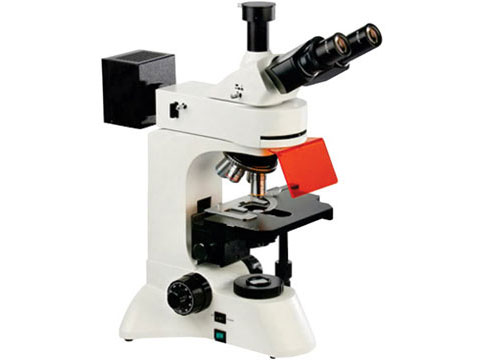High-quality laboratory equipment is indispensable for medical laboratories aiming to maintain precision, reliability, and efficiency. In this article, we will explore the essential laboratory equipment required for medical laboratories, focusing on their functionalities, importance, and advancements.
Analytical Balances
Analytical balances are critical for obtaining precise measurements of mass. These instruments are essential in various laboratory applications, from weighing chemicals for reactions to measuring samples for analysis. The precision of an analytical balance is paramount in ensuring the accuracy of experimental results. Modern analytical balances come equipped with advanced features such as digital displays, internal calibration, and data integration capabilities, enhancing their usability and accuracy.
Microscopes
Microscopes are fundamental in medical laboratories for examining cell structures, microorganisms, and tissues. They enable detailed visualization, which is crucial for diagnosing diseases, conducting research, and performing quality control. There are several types of microscopes, including light microscopes, electron microscopes, and fluorescence microscopes, each serving different purposes and offering varying levels of magnification and resolution.

Centrifuges
Laboratory Centrifuges are essential for separating components of a mixture based on their density. They are widely used in clinical laboratories for blood sample processing, urine analysis, and DNA extraction. Modern centrifuges come with programmable settings, safety features, and adaptable rotors, making them versatile and user-friendly. High-speed and ultracentrifuges are available for more specialized applications requiring greater separation forces.

Autoclaves
Sterilization is a critical aspect of maintaining a contamination-free environment in medical laboratories. Autoclaves are devices used to sterilize equipment and supplies by subjecting them to high-pressure saturated steam. They are essential for ensuring that laboratory instruments are free from microorganisms, thereby preventing cross-contamination and ensuring the integrity of experiments and tests.
Spectrophotometers
Spectrophotometers are used to measure the intensity of light as a function of wavelength. They play a vital role in quantifying the concentration of substances in a solution, which is essential in biochemical analysis, molecular biology, and clinical diagnostics. Advanced spectrophotometers offer features such as multiple wavelength scanning, high sensitivity, and integration with laboratory information management systems (LIMS).
PCR Machines
Polymerase Chain Reaction (PCR) machines are indispensable in genetic research and diagnostics. They enable the amplification of specific DNA sequences, facilitating the detection and analysis of genetic material. PCR machines are used in various applications, including disease diagnosis, forensic science, and genetic engineering. Modern PCR machines offer high throughput, real-time monitoring, and advanced software for data analysis.
Refrigerators and Freezers
Proper storage of biological samples, reagents, and chemicals is crucial in medical laboratories. Laboratory-grade refrigerators and freezers provide precise temperature control, ensuring the stability and integrity of stored materials. Ultra-low temperature Laboratory freezers are used for long-term storage of sensitive biological samples, such as DNA, RNA, and proteins, while standard laboratory refrigerators are used for routine storage of reagents and samples.

Flow Cytometers
Flow cytometers are sophisticated instruments used to analyze the physical and chemical characteristics of cells or particles in a fluid as they pass through a laser. They are essential in immunology, cancer research, and stem cell research. Flow cytometers enable high-throughput analysis, multi-parameter measurements, and sorting of specific cell populations, providing invaluable data for research and diagnostics.
Next-Generation Sequencers
Next-Generation Sequencing (NGS) technology has revolutionized genomic research and diagnostics. NGS platforms enable rapid and comprehensive analysis of genetic material, allowing for the identification of mutations, genetic variants, and gene expression profiles. This technology is pivotal in personalized medicine, cancer genomics, and infectious disease research. Advanced NGS platforms offer high accuracy, scalability, and integration with bioinformatics tools.
Mass Spectrometers
Mass spectrometry is a powerful analytical technique used to identify and quantify compounds based on their mass-to-charge ratio. Mass spectrometers are used in proteomics, metabolomics, and pharmacokinetics to analyze complex biological samples. They provide high sensitivity, specificity, and the ability to analyze a wide range of molecules, making them indispensable in advanced biomedical research and clinical diagnostics.
Importance of High-Quality Laboratory Equipment
The accuracy and reliability of laboratory results are directly influenced by the quality of the equipment used. High-quality laboratory equipment ensures:
- Precision: Accurate measurements and reproducible results.
- Efficiency: Streamlined workflows and reduced turnaround times.
- Safety: Compliance with safety standards and minimization of risks.
- Longevity: Durable equipment with minimal maintenance requirements.
Investing in high-quality laboratory equipment is essential for maintaining the integrity of research and diagnostic outcomes. It also enhances the laboratory's capability to adapt to new technologies and methodologies, ensuring sustained progress and innovation.
MRC also provide a wide range of laboratory equipment for medical laboratories. For more details contact us